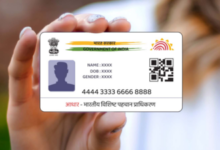The UN passes the first global AI resolution and requests that nations uphold personal privacy and human rights
The first worldwide resolution on artificial intelligence was overwhelmingly approved by the UN General Assembly on Thursday. It calls on nations to uphold human rights, secure personal information, and keep an eye out for any threats associated with AI.

The nonbinding resolution, which is co-sponsored by China and more than 120 other countries and was put out by the United States, also calls for the reinforcement of privacy regulations.
U.S. Ambassador to the UN Linda Thomas-Greenfield said, “Today, all 193 members of the United Nations General Assembly have spoken in one voice, and, together, chosen to govern artificial intelligence rather than let it govern us.”
The resolution is the most recent in a long line of toothless attempts by governments throughout the globe to control the use of artificial intelligence (AI). These efforts stem from concerns that AI may be used, among other things, to undermine democratic processes, increase fraud, or cause sharp job losses.
“The improper or malicious design, development, deployment and use of artificial intelligence systems… pose risks that could… undercut the protection, promotion and enjoyment of human rights and fundamental freedoms,” the legislation states. The United States, United Kingdom, and over a dozen other nations presented in November the first comprehensive international agreement on safeguarding artificial intelligence from rogue actors, requiring businesses to develop AI systems that are “secure by design.”
With the adoption of a temporary accord by EU legislators this month to regulate technology, Europe has advanced ahead of the US. The Biden administration has been pushing Congress to regulate AI, but little progress has been achieved because of the divided nature of the US Congress.
Meanwhile, the White House issued a new executive order in October that aimed to strengthen national security while lowering the dangers that AI poses to minorities, labor, and consumers.
The resolution took over four months to draft, but according to U.S. National Security Advisor Jake Sullivan, it provided “a baseline set of principles to guide next steps in AI’s development and use” for the globe.
Senior administration officials responded to questions on Wednesday about whether or not China or Russia was putting up a fight during negotiations by saying that there had been “lots of heated conversations,” but that the administration was actively interacting with nations with whom it disagrees.
Chinese and Russian authorities, like governments worldwide, are excitedly investigating the use of AI technologies for a range of purposes. Microsoft said last month that it had discovered hackers from both nations honing their espionage techniques using OpenAI software, which Microsoft had sponsored.
China has responded to the Microsoft report by saying it rejects what it refers to as unfounded allegations, while Russia did not answer a request for comment.







